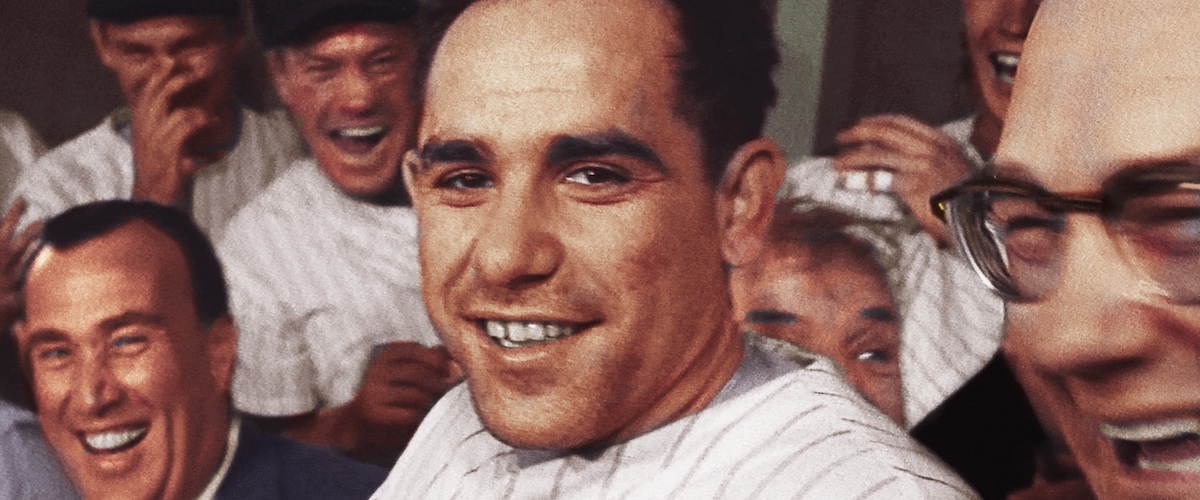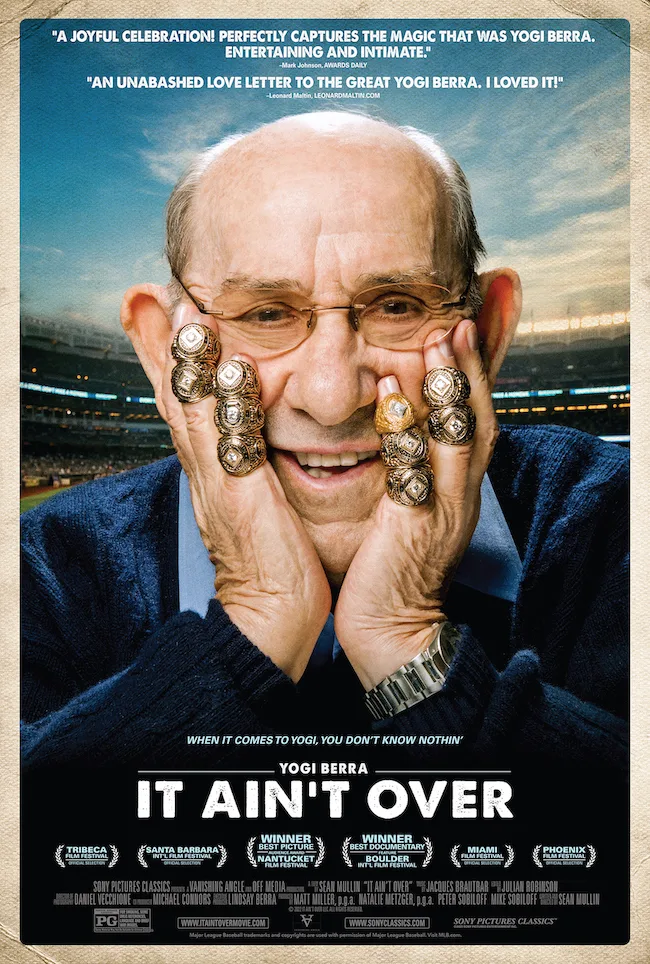One night, a friend of mine who lives in Montclair, New Jersey, drove me around the exclusive neighborhood on the hill to show me all the mansions owned by people like Stephen Colbert. We came to a fork in the road, and my friend said, “No matter which fork you take, you get to Yogi Berra‘s house.” He then drove me around the circular road to show me. It was so funny, especially in the context of one of Yogi Berra’s (many) famous comments (known as “Yogi-isms”): “When you come to a fork in the road, take it.”
Yogi-isms are often treated as ungrammatical nonsense, examples of misspeaking, word-scramble, or basically just stating the obvious. But on closer examination, they all reveal truths. The meaning was never abstract, and the message was always clear. My personal favorite, which I have called upon from time to time, is, “It was déjà vu all over again.” It’s funny, yes, but you know exactly what he means. The most famous Yogi-ism is probably “It ain’t over till it’s over,” and “It Ain’t Over” is the title of a new documentary about Berra, directed by Sean Mullin.
The title could have multiple meanings, in the same way, Yogi-isms tend to unfold the longer you think about them. Yogi Berra played baseball and coached and managed teams. He did so for the majority of his career to great distinction. Yet he is remembered mostly for the Yogi-isms, for Yogi Bear, and the lovable, goofy image presented by the media. The tone was often condescending, focusing on his apparently un-baseball-like appearance, short, squat, and close to the ground. He was treated almost like a clown, or a team mascot, particularly with his penchant for product endorsement and silly commercials. Meanwhile, he was a force to be reckoned with at the plate and behind it as a catcher.
Let’s not forget he was the child of Italian immigrants and enlisted in World War II before getting drafted (with a New York Yankees contract already signed). He was present at the storming of the beach at Normandy. The documentary’s title could refer to Berra’s legacy, which needs some serious polishing.
“It Ain’t Over” starts with an inciting event. At the 2015 All-Star Game, the fan-voted “four greatest living players” (Sandy Koufax, Hank Aaron, Johnny Bench, and Willie Mays) walked out onto the field to a thunderous ovation. It was very touching, but I remember my cousin saying, “Where the hell is Yogi?” Indeed. Many people said the same thing, and “It Ain’t Over” repeatedly says it. It’s unfair that Yogi should be minimized by his “brand,” a lovable regular feature in the game, wisecracking, goofing off in commercials, and participating in his “brand,” a brand which overshadowed his career.
All you need to do is look at his dazzling stats. As a player, he won 10 World Series championships. He was MVP three times. In 1956, during the World Series, pitcher Don Larsen pitched a perfect game, with Berra squatting behind the plate, essentially running the show. I love the detail provided that of all the pitches Larsen threw that day, he didn’t wave off one of Berra’s calls. Not one. The accomplishment is as much Berra’s as Larsen’s. It is the only perfect game in World Series history. The footage is still thrilling, no matter how often you watch it: Berra leaping into Larsen’s arms like a little kid as the crowd goes wild. As a manager and coach, the World Series wins continued to rack up. His record is, if anything, more impressive than the four greatest living players (legends all, and rightfully so). So why the condescension?
“It Ain’t Over” is a family affair: his sons are interviewed, and his grandchildren (his granddaughter is the main voice, leading us through the career). This gives the doc an urgent and emotional mood. The Berra family tells the stories with familiarity and affection, often laughing or crying: this is well-trod ground, tall tales, the narrative of their family.
The roster of interview subjects is impressive, with Derek Jeter, Roger Angell, and other writers, former teammates, and current-day admirers. I loved the brief, enthusiastic commentary from former MLB player Nick Swisher: “12 strikeouts? I don’t even think I did that in whiffle ball!” Former player and coach Joe Madden says bluntly, “Just look at the old videos, man.” Roger Angell said, “He abolished the strike zone.”
There’s also copious commentary on his welcoming the integration of the major leagues at a time when it was not a popular stance to take. Jackie Robinson never forgot Yogi Berra’s first comment to him: “Thank you for your service to the country, and welcome to professional baseball.” There’s more where that came from, including Berra’s late-in-life involvement in Athlete Ally, a nonprofit advocacy group helping sports organizations be more inclusive towards their LGBTQ fans and athletes.
“It Ain’t Over” works the way it’s supposed to work. I admit I am a sucker for baseball players talking shop, enthusing and sharing knowledge, and professional admiration for peers and forebears. There is a continuum, an inheritance from the past. The film includes a tangent into Yogi-isms and how they are constructed, with life coaches and linguists weighing in. This is an unnecessary divergence. If you need it explained why Berra’s “If you can’t imitate him, don’t copy him” makes perfect sense, no literary professor can help.
In Moneyball, Billy Beane (Brad Pitt), the beleaguered Oakland A’s general manager, says wryly, “It’s hard not to be romantic about baseball.” Maybe some people find it easy. But if you find it hard, people like Yogi Berra matter. The history matters. The real history. Not Yogi Berra’s brand, not who Berra was as a public figure, but who he was in the game. Let’s talk about that.
Now playing in theaters.




















